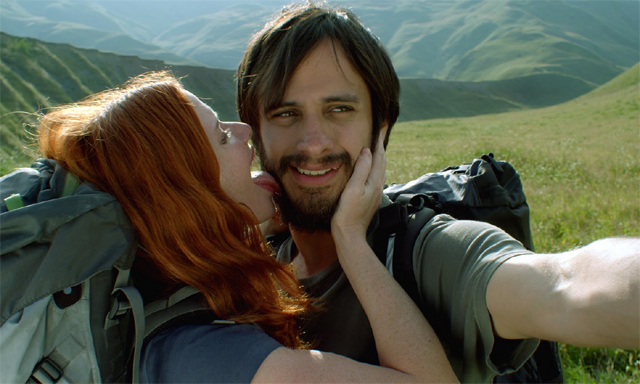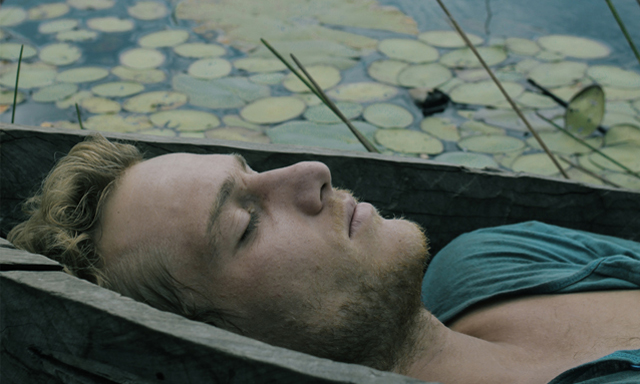In this accelerated age there are still some films that require us to slow down and surrender to the screen. And it’s not a bad thing, writes Peter Machen.
I was talking to a friend of mine about the mix of films at this year’s Durban International Film Festival, and about the fact that, while many of the films will be engaging and easily accessible to mainstream audiences, there are some movies that require a certain surrender from viewers, a different mode of viewing from one that is perpetually primed for the next piece of action or twist in the tale.
I’ve been talking and writing about this notion of surrender quite a lot of the over last year, particularly in relation to epic films such as 2001 and Tree of Life, which don’t in any way conform to the narrative structures that we have come to expect from movies over the last few years. Why, though, my friend asked, should we have to surrender to a film, particularly in age when attention spans have become so limited? It’s a valid point, I suppose, and I set about answering it from a number of a perspectives. Firstly, just because mainstream global culture is becoming increasingly vacuous and hyperactive, doesn’t mean that we need to follow its lead. But of course, we are also subject to the forces of culture, media and marketing, and I’m deeply aware that my own attention span has also shrunk, and I don’t always find it easy to sit down and bathe myself in a film of slow and languid beauty. And beyond our incredibly busy and demanding 21st century lives, there’s another reason why so many people struggle with films that move slowly and more deliberately than most. It’s because we’ve poisoned by watching episodes of the same television series one after the other, when we might, say 10 years ago, rather have watched a film.
Don’t get me wrong. I love spending a good chunk of time watching the many excellent contemporary television series available on DVD. But this habit of watching series in bulk, although largely unremarked upon in our media, is a key behavioural change in the way we consume the moving image, both in terms of watching things when we want to watch them, and also in the ways that our easily habituated brains have adjusted our viewing habits.
But series are still made to be broadcast on live television. And they are still designed around ad breaks that pitch up every five to seven minutes. And so we have become heavily conditioned to watching filmed entertainment that is constructed in short modular segments. Suddenly faced with a single scene in which we watch a character walks across a landscape for 10 minutes, we find it hard to cope.
That reasoning goes some way to explaining the difficulties that contemporary viewers have with films made in slower and more deliberate modes than standard Hollywood flicks and television series, but it still doesn’t explain why viewers should have to surrender. And the answer to that question, or, more accurately, my answer to that question, is that the rewards are more than worth the effort. I know a great many people who found Terrence Malick’s Tree of Life, for example, unbearable to watch. For me, it was one of the richest experiences of my life. And what I find striking about this disjunction of opinion is that I share a great many aesthetic judgements with people who hated the film. Whether the notion of surrendering to Malick’s slow and languid beauty would actually help my friends discover the same sense of cosmic and banal transcendence, is of course, a difficult thing to prove, but I’m running with it, if for no other reason that before the accelerated culture of the last two decades, films operated at a slower and more human speed than most of today’s movies.
There is another reason for giving in to these kind of films. All of art functions as a kind of bio-feedback mechanism, making us richer, and possibly ever more fulfilled human beings. And if we only ever want to be entertained, as opposed to enriched and expanded, well, we will only ever be entertained, and we will be all the poorer for it.
At this year’s Durban International Film Festival, there are – of course – a number of these slower films, and while I’m aware that I might be tainting these film with a scarlet letter, I also know that there are many fans of films that allow space for contemplation.
The Loneliest Planet from Julia Loktev is perhaps the perfect example of the genre. Telling the story of Nica (Hani Furstenberg) and Alex (Gael Garcia Bernal) an engaged couple hiking through the wilderness of Georgia, the film perfectly captures the flow of emotions between the two people, a fluidity that is dramatically – but also remarkably subtly – broken when Alex responds to the threats of a group of rural wanderers with a gesture that haunts the couple’s relationship for the rest of the film.
In The River Used to Be a Man, slowness surfaces once more, as a young German traveller finds himself unexpectedly alone in the Okavango delta. Here the passage of time itself becomes an actor in the film, albeit one that is essentially an expression of the need for survival. This powerful film, fuelled by a unique vision, is offers an accessible passage into the world of contemplative cinema.
Then there’s Wetlands and Last Winter, two deeply moving films about struggling to survive in rural farming communities. In both these films, time is expressed through humanity’s relationship with nature, and the films’ careful observation of that relationship, refracted through the looking glass of modernity, provides a sense of transcendence at odds with the very different pressures of urban life.
Those who remain unconvinced about my urge to appreciate films that move at a gentler pace should not be too concerned however. This year’s film festival includes a great many films that are easily engaged and require little change in your viewing habits. Isn’t that great news? I’m not sure.
